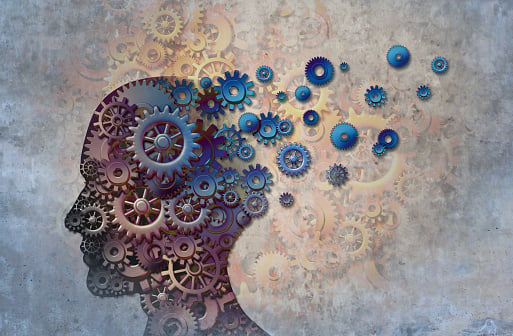It’s true that the risk of dementia increases with age, but so do normal memory lapses—so don’t panic if you forget someone’s name or the place you visited last year. A recent story by NPR discusses memory loss as we age, including the differences between typical memory loss and dementia, and the warning signs of brain health issues. Here, we share research and tips on boosting memory.
What’s Normal Aging?
In the NPR story and accompanying audio clip, Dr. Kirk Daffner, chief of the division of cognitive and behavioral neurology at Brigham and Women's Hospital in Boston, shares that it’s quite common to have trouble remembering the names of people, places and things quickly after the age of 50. The brain ages like the rest of the body; parts of it shrink, including those that focus on learning, memory and planning functions. Plus, as brain cells change, the communication patterns between parts of the brain also change, and blood flow can be reduced with narrowing arteries. The speed at which you retrieve information can slow and it’s typical to not be able to juggle as many pieces of information at once.
It’s perfectly normal, Daffner says, to forget the name of your favorite restaurant or the name of the actor in a movie. But if you’re reminded of recently seeing a movie and you can’t remember the experience at all or you can’t remember any of the plot, that’s more of a red flag. So is forgetting how to use a microwave or how to get to a friend’s house in a familiar neighborhood.
Even then, though, the culprit may be something other than dementia. Common causes include sleep apnea, high blood pressure, depression, prescription medicines (including antidepressants) and over-the-counter medicines, such as antihistamines.
What to Do
If you’re concerned about your memory, talk to your doctor. To help prevent memory loss, Daffner suggests “building up your brain’s cognitive reserve.” Specifically, he recommends:
- Reading books
- Going to movies that challenge you
- Starting new hobbies that get you out of your comfort zone
- Exercising
Exercise for Physical AND Mental Health
A 2012 article in Time shares research from a University of California, Irvine project that studied more than 50 adults from the ages of 50-85. Half had memory deficits and half were “mentally healthy.”
One group (consisting of people of varying memory functionality) rode a stationary bike for six minutes, but the other group did not. Then, an hour after the exercise group rode the bike at 70 percent of their maximum ability, everyone was given a surprise memory test—with exercisers clearly showing boosted memory. In fact, participants who had memory impairments nearly doubled their ability to recall.
The researchers also took saliva samples of participants and concluded that norepinephrine, an exercise-induced brain chemical, may be boosting memory. A biomarker for that chemical appeared in high levels in the exercisers, even more so with those who started out with cognitive deficits. Previous studies have shown that giving drugs that influence norepinephrine can boost memory, while blockers impair recall.
More recent studies have also found links between physical exercise and better memory in older adults. University of Boston researchers found that older participants who took more steps each day performed better on memory tests. More specifically, the strongest link was found between the number of steps taken by an older adult and his or her ability to associate a name with a face. The research team encouraged increasing physical activity, even if in smaller amounts, such as taking the stairs instead of an elevator.
Meanwhile, a United Kingdom study found that, in a group of 324 female twins (average age of 55), those with stronger legs were in better cognitive health, suggesting that gym workouts, running and walking can help a person stay mentally healthy, as well.
By taking on new challenges and maintaining your physical health, you can ensure your cognitive skills will remain sharp as you age.














